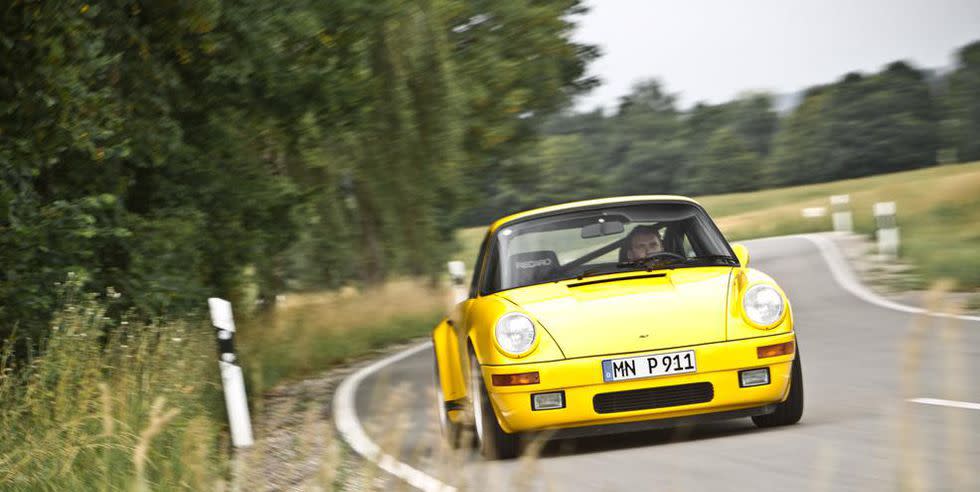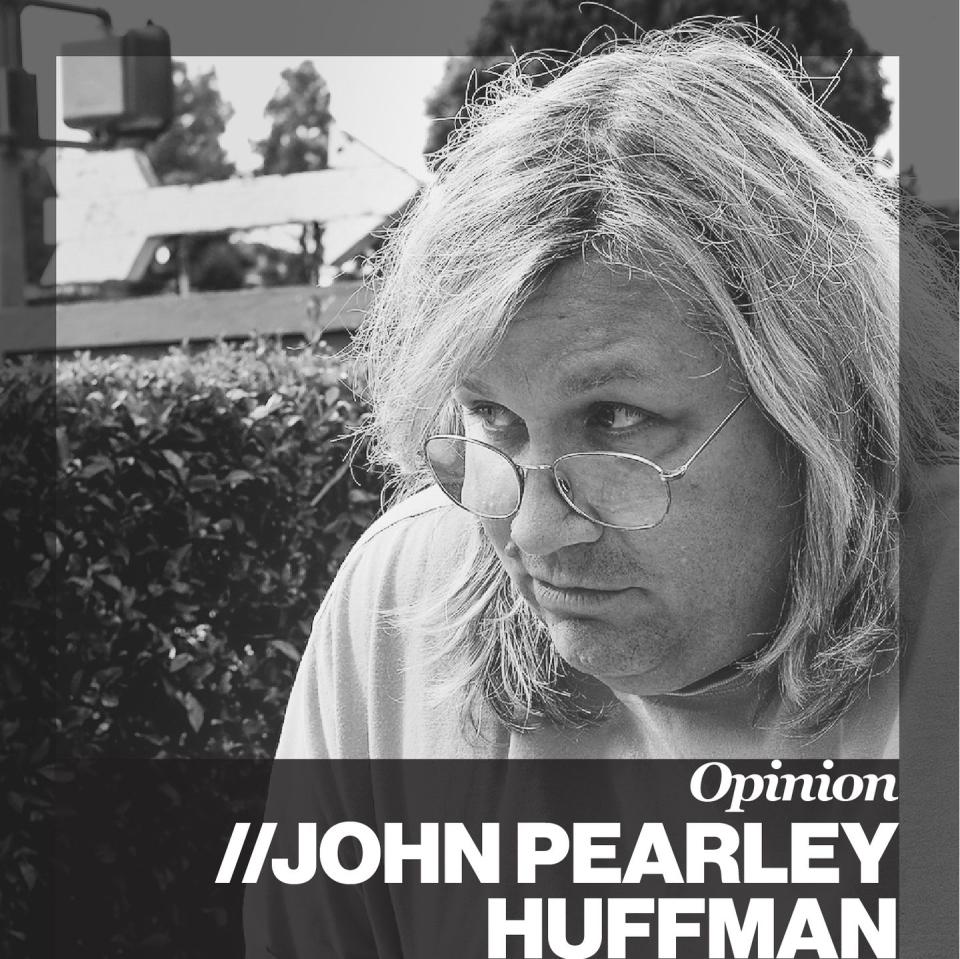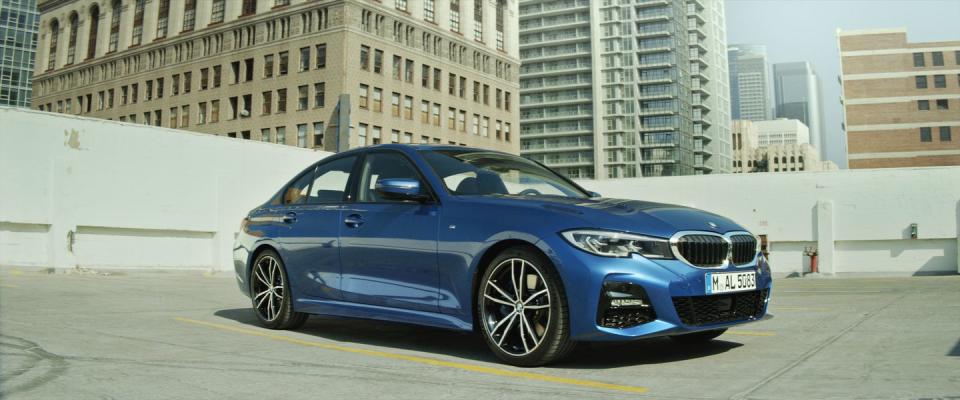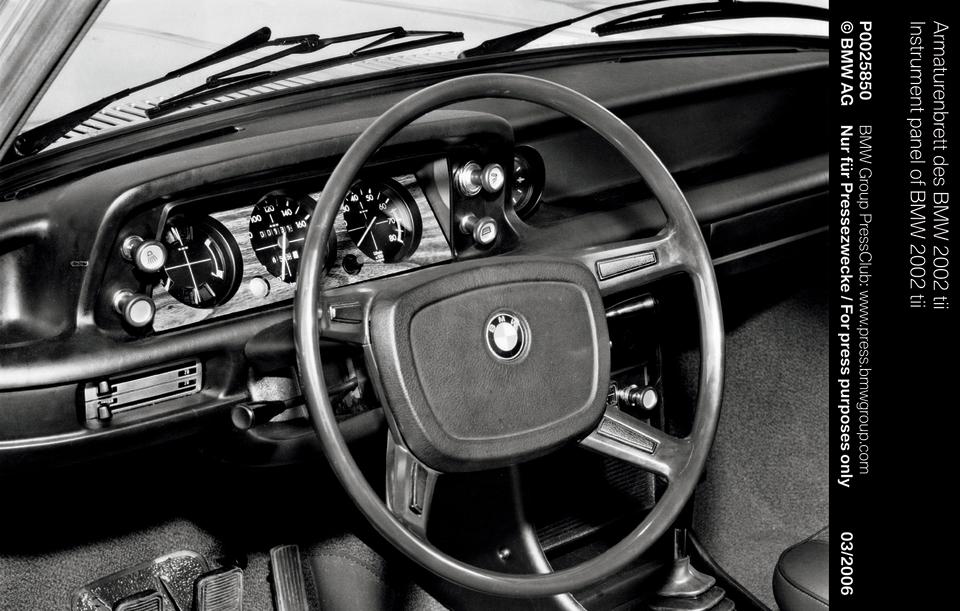In a Digital World, an Analog Car Is a Luxury

"Our customers want an analog car," Alois Ruf, whose tuning German firm turned 70 this year, explained recently. "A driver's car. This is what's not available these days. Because the cars you're buying today are all digital. Cars that almost drive by themselves. We are a real specialty, boutique manufacturer."
We have arrived at the tipping point. That moment in time when all things digital has become all things ordinary. Today you're vastly more likely to tap an app than to nudge a gearshift into the next gear. Ones and zeros mediate most of what we hear, see, and touch. Digital is boring.
And now analog is exotic, romantic, and glamorous. Physical, often mechanical, engagement has become a luxury for the rich.

"I think the tipping point was the end of BlackBerry," said Malcolm Gladwell, whose book The Tipping Point popularized the idea of, well, tipping points, when it was published in 2000. "It was the last gasp of an analog experience grafted onto a digital paradigm."
Simulated physical sensation isn't the same thing as, well, strapping yourself into a 700-hp RUF CTR Anniversary and flinging oneself out onto the autobahn. No matter how much "haptic feedback" is built into the touchscreen.
"The number of things that are now exotic to a digital generation is kind of incredible," Gladwell continues, via email. "That touch should have physical dimension and require effort, that content should have weight, that navigation should require engagement, that entertainment should be finite. The fact that the new 3-series doesn't come with a manual [transmission] may be the official death knell for the analog age." If there is a Federal Board of Death Knells, consider it alerted.

C/D has been evangelizing for the spiritual value of manual transmissions for longer than most of us who write for it have been alive. But the digitization of cars has proceeded way beyond that. Computers mediate everything from steering assist to suspension behaviors, braking reactions, seat position, and virtually everything else. Full automotive autonomy may still be a long way off, but human drivers are already in full partnership with the software embedded in every new vehicle. We only feel what the computers want us to feel.
As analog experiences become rarer, they develop a mystique: the allure that comes with the difficulty of acquisition. They become glamorous.
"Glamour creates this feeling of projection and longing," explains Virginia Postrel, whose 2013 book The Power of Glamour: Longing and the Art of Visual Persuasion explored this allure. "And one critical element in doing that is mystery."
If you've never driven a car with a manual transmission, or without power steering or power windows, something basic is mysterious. "When something is distant from our regular lives because it's expensive or far away or in the past or in the future, it creates that sense of mystery which makes things more glamorous."
It's unlikely that rich people are going to suddenly accept Ford Model Ts and Lotus Sevens as status symbols. But as analog experiences become tougher to attain and diverge more radically from our everyday experiences, they're bound to become more expensive. After all, Alois Ruf has never given away a CTR Yellowbird.
The culture has already begun more preciously valuing some mechanical objects in a world dominated by electronics. The Apple Watch does plenty of things the Rolex Cosmograph Daytona can't. But the Apple Watch Series 4 caps out at $799, while Rolex gets $16,900 for a base Daytona and goes up from there. Everyone can download Boz Scaggs's Greatest Hits Live for $9.99 on iTunes, but connoisseurs are buying theirs on vinyl at Barnes and Noble for $22.79. Add your own examples here.
This may also explain the massive proliferation of massage parlors in recent years. But that's a story for another publication at another time.

The major manufacturers aren't going to abandon digital controls in the near future. And that leaves the analog-luxury niche open to firms like Ruf, Morgan, Caterham, and maybe Lotus, if it survives and wants it. The feel of torque surging up through a transmission to the gear shifter and into the palm of a driver's hand is now a luxury experience. As is the actual unenhanced sound of a throaty exhaust, the kickback of a steering wheel, the feel of brake pads grabbing discs, and the sensation of a car's tail sweeping out in oversteer.
Horses were ordinary beasts of burden for centuries. Now they're, for the most part, the playthings of the wealthy. Same thing.
For most people most of the time, digital is a blessing that makes their lives better. "When something is part of your everyday experience, even if it's very luxurious, very pleasurable, it's not going to be glamorous because you're always going to know the downside," adds Postrel. "You get your dream job, you love your dream job, but it's still your job."
It used to be that the mechanical and analog worlds were ordinary and mundane. Now they are exotic and thrilling. Expect to pay accordingly.
('You Might Also Like',)

